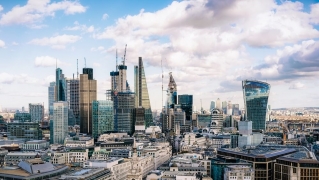Archived article
Please note that tax, investment, pension and ISA rules can change and the information and any views contained in this article may now be inaccurate.

The FTSE 100’s Big Five banks dutifully cancelled £7.5 billion in dividend payments to shareholders last week as pressure from regulators to keep more capital on their balance sheets and now the insurance industry is following suit, after calls from the Prudential Regulatory Authority and the European Insurance and Occupational Pensions Authority (EIOPA).
FTSE 100 constituents Aviva and RSA and FTSE 250 firms Direct Line and Hiscox have decided to withhold £1.3 billion in dividends.
That takes April’s total of cancelled, deferred or suspended dividend payments to £4 billion across the UK market, and the aggregate income lost to shareholders this year to £19.3 billion.
It also pours the pressure on Legal & General, which last Friday reaffirmed its commitment to paying a second-half 2019 dividend of 12.64p a share, worth some £754 million.
Other FTSE 100 insurers yet to confirm or change their dividend plans in light of the intervention from both the PRA and EIOPA include Phoenix Group, Admiral and Prudential.
| H1 2019 | H2 2019 | H2 2019 | Full-year | |||
|---|---|---|---|---|---|---|
| Already paid (£ m) | To be paid (pence) | To be paid (£ m) | Total dividend (£ m) | Ex-dividend date | Payment date | |
| Admiral | 185 | 77 | 226 | 411 | 07-May-05 | 01-Jun-06 |
| Aviva | 373 | 0 | 0 | 373 | N/A | N/A |
| Legal & General | 294 | 12.64 | 754 | 1,048 | 23-Apr-20 | 04-Jun-20 |
| Phoenix | 169 | 23.4 | 169 | 338 | 02-Apr-20 | 19-May-20 |
| Prudential | 422 | 20.78 | 540 | 963 | 26-Mar-20 | 15-May-20 |
| RSA | 77 | 0 | 0 | 77 | N/A | N/A |
| St James's Place | 99 | 31.22 | 167 | 266 | 16-Apr-20 | 22-May-20 |
| Total | 1,619 | 1,856 | 3,475 |
Source: Company accounts
The issue does not appear to be the insurers’ ability to pay. Applying EIOPA’s own Solvency II ratio, which measures how much capital insurers have to hold to be confident they can withstand a worst-case loss scenario, all of the seven FTSE 100 firms appear well buttressed. (Following the demerger of fund manager M&G, Prudential no longer falls under the EIOPA’s purview and it is now regulated by the Hong Kong Insurance Authority, but the company carries a sizeable surplus relative to the Local Capital Summation Method and is therefore also in the clear, at least on paper.)

Source: Company accounts. After the M&G demerger, Prudential is not subject to Solvency II and now operates under Hong Kong Insurance Authority rules, whereby it has a $9.7bn surplus relative to the Local Capital Summation Method (LMCS), or 356% of requirements
Instead, EIOPA, like the PRA with the British banks, wants the insurers to keep the capital as an extra buffer against potential losses relating to COVID-19 and the associated economic downturn.
There may be another reason for insurers to wish toe the regulatory line, namely public perception. Paying out large amounts of cash to shareholders when tales of refusal to pay out those hit (yet again) by floods or whose livelihood has been destroyed by the lockdown is not necessarily a good look. By contrast, it is a good look for regulators and politicians to take a tough line even if, with plenty of justification, the insurance industry can say it did not need the taxpayer bail-outs that the banks hoovered up during the great financial crisis of 2007-09.
This combination of regulatory intervention and greater public awareness of the issue of dividend payments is a new, variable element for equity investors and income-seekers to address. Whatever the length of the COVID-19 lockdown and the duration of the subsequent economic downturn, this debate may be one of their longest-lasting effects.
Increased public appreciation of those who have worked in stores or warehouses or supply chains and kept the show on the road could also mean increased pressure for improved salaries and conditions for the lower-paid – especially if firms focus on more local supply chains and reduce their reliance on global ones, further tightening the labour market over time.
Increased Government involvement could mean more regulation and greater emphasis upon returns for stakeholders (employees) relative to shareholders.
This combination could all mean lower returns on capital, lower pay-outs and potentially lower trend total returns for investors. Share buybacks in particular will surely come in for greater regulatory scrutiny but dividends could be restrained too, either voluntarily by companies or otherwise. This could knock, to some degree, the long-term investment case for equities, since dividends are a vital component in the total return from stocks. Over the past 10 years, for example, the FTSE 100 has provided investors with a capital loss of 1%, as it has managed to go from 5,762 to 5,704 over that time span (as of yesterday’s close). The total return, while hardly stunning, has at least been 45%, thanks to the receipt and then reinvestment of dividends.
It will therefore be interesting to see whether Legal & General sticks to its guns or decides to bow to the regulatory authorities. If it, Admiral, Phoenix and Prudential all make their planned payments, dividends from the FTSE 100’s insurance sector will still total some £3.4 billion for 2019, although that will be down from £4.5 billion in 2018.

Source: Company accounts, Sharecast, analysts’ consensus forecasts
These articles are for information purposes only and are not a personal recommendation or advice.
Related content
- Mon, 29/04/2024 - 09:30
- Wed, 17/04/2024 - 09:52
- Tue, 30/01/2024 - 15:38
- Thu, 11/01/2024 - 14:26

